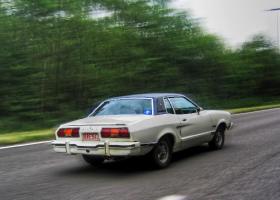The case of the motorist caught speeding at 127 mph who avoided disqualification

Motoring barrister Sunil Rupasinha explains the importance of preparation when arguing in mitigation
Recently I saw a client in conference. He was concerned that he had been caught speeding at over 100 mph and that he would lose his employment. In fact, he had been clocked at 127 mph! He intended to plead, ‘Guilty,’ but was very concerned about disqualification. Did he deserve to be disqualified?
I expect most of you will answer that question with a resounding, ‘yes’. You will all have your reasons for condemning those who break speed limits. They are breaking the law. They imperil others as well as themselves and so on. Many of us have no sympathy for those caught speeding. But, let’s pause for a moment. What about considering the context in which this offence was committed? Don’t you think that anyone caught speeding is entitled to a fair hearing as to what the penalty should be? Of course you do; we are all entitled to a fair consideration of our mitigation. What does this mean?
In practice, this means that a court may take into account a number of criteria such as:
- Did the Defendant indicate he would plead ‘Guilty’ at an early stage and follow this up with a ‘Guilty’ plea at the first opportunity? (The courts give credit, as to sentence, to those who save court time and public money by admitting guilt rather than being found ‘Guilty’ following a trial);
- Was there anything else wrong with the defendant’s driving? For example, did the manner of the Defendant’s driving give any cause for concern (other than the speed);
- Was the Defendant co-operative with the police? (If it is a case in which he was pulled over);
- Did the Defendant have a clean driving licence? Perhaps it was his first ever offence after 30 years of driving, for example;
- Were there any circumstances that would have meant a disqualification would have had an especially severe effect upon the Defendant (such as loss of job and livelihood)?;
- Were there any circumstances that meant others, who perhaps depend upon the driver, would also suffer if he lost his licence? For example, an ill mother or child who regularly depends upon the driver for hospital visits but who obviously bore no responsibility for the commission of the offence; and,
- Were there any other circumstances which meant that the driver was just not himself that day? (The range and type of circumstances that could arise in any given case are virtually infinite).
I took instructions from the Defendant and I explained to him what evidence he needed to gather to support his mitigation. Once this documentation had been gathered and his case was listed I represented him in court.
As the Defendant was driven away from court that day I expect he was thrilled that he had acted fully upon the advice I had given him in advance of his appearance as to what evidence should be obtained and that the court had been persuaded not to ban him! Before you rush to judgment, do bear in mind that the tribunal consisted of three independent and mature magistrates who made a reasoned decision, having heard the evidence, that it was not in the interests of justice to disqualify the Defendant from driving.
Therefore, if you are ever caught driving at well over the speed limit consider your options carefully. If you gather the evidence you require, marshal your arguments well and know how to put them across to best effect you just might be able to avoid a disqualification and keep your life on track.




